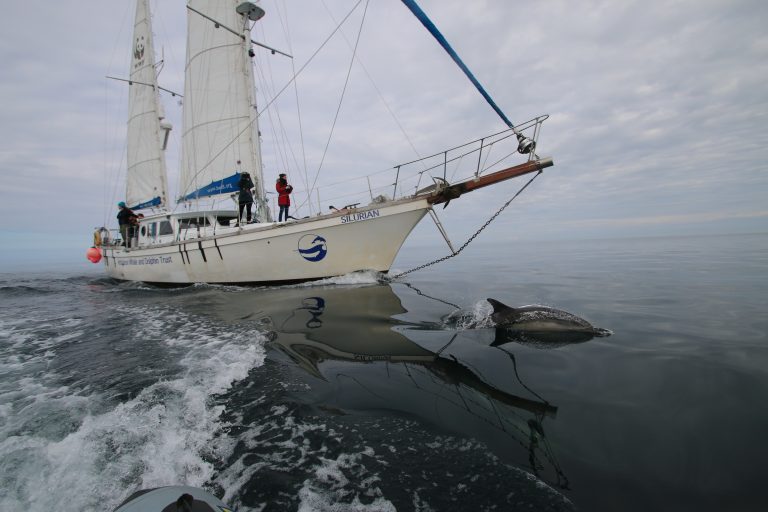A recent report from the Hebridean Whale and Dolphin Trust reveals a remarkable increase in minke whale sightings while basking shark numbers hit a record low in the Hebrides during 2023. This study, published by NatureScot, reflects data collected over the last three years through marine research expeditions conducted on the Trust’s research vessel, Silurian.
Minke Whale Sightings Reach New Heights
The research reveals a remarkable increase in minke whale sightings, boasting a notable rate of 1.57 sightings per 100 km in 2023, marking the highest level observed in the last two decades of the monitoring programme. Overall, a total of 167 minke whales were documented during the year, showcasing the vital role of Scotland’s waters as a feeding ground for this species during the summer months.
Basking Sharks Face Unprecedented Decline
In stark contrast, basking shark sightings fell to a troubling 0.07 per 100 km in both 2022 and 2023, marking the lowest sighting rates since the programme’s inception. Just seven basking sharks were observed across both summers, raising concerns about the health of this globally endangered species.
This inverse relationship between minke whale and basking shark sightings suggests a complex dynamic that warrants further investigation. The Hebridean Whale and Dolphin Trust emphasizes the need for ongoing research to uncover the potential causes behind these fluctuations, including climate change and its impact on marine ecosystems.
The Importance of Long-Term Monitoring
Dr Lauren Hartny-Mills, Science and Conservation Manager at the Hebridean Whale and Dolphin Trust, highlighted the significance of these findings, stating, “Scotland’s west coast seas are a global hotspot for cetaceans and basking sharks. Our findings underline the necessity for long-term monitoring to understand the threats these species face and to safeguard them effectively.”
The Trust has been committed to tracking marine life since 2002, allowing members of the public to participate in its research expeditions aboard the Silurian. Over time, these initiatives have yielded important insights into the health and behaviour of marine species in the waters around the Hebrides.
The Need for Action
Despite the encouraging rise in minke whale sightings, the Trust warns that this vulnerable species still faces several threats. Factors such as climate change, pollution, underwater noise, and habitat degradation significantly affect their well-being. Rona Sinclair, Marine Mobile Species Monitoring Advisor at NatureScot, stressed the importance of collaboration in conservation efforts.
“The decrease in basking shark sightings is alarming, likely linked to the availability of their food, zooplankton. Continued partnerships with organisations like the Hebridean Whale and Dolphin Trust are crucial for understanding these changes and implementing appropriate conservation measures,” Sinclair noted.
Future Research and Opportunities
The new report, ‘Hebridean Cetacean Research Programme 2021-24,’ summarises the data gathered during the Trust’s research expeditions from April 2021 to March 2024. Over 49 surveys covered 22,645 km, documenting ten species of marine mammals and involving nearly 300 volunteers who contributed to visual surveys and monitoring.
Volunteers interested in supporting this vital research can participate in the Trust’s 2025 expeditions. Their involvement not only aids scientific discovery but also fosters a deeper connection with Scotland’s rich marine biodiversity.
